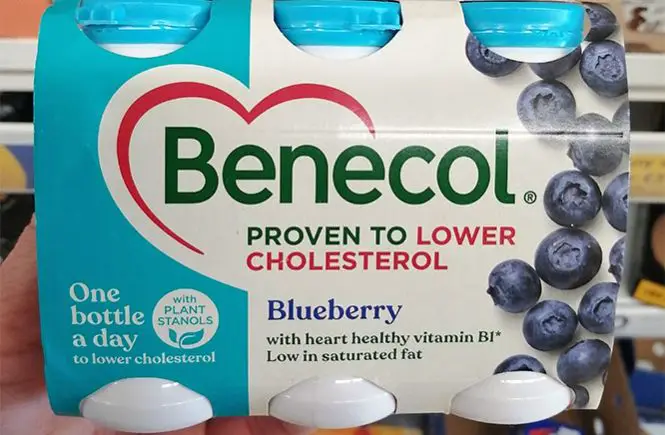For those of you prioritizing heart health and maintaining a balance in cholesterol, you might be familiar with Benecol. This well-known drink has made its mark for its cholesterol-reducing abilities. However, as the demand for wholesome and budget-friendly choices grow, numerous supermarket chains now offer their renditions of cholesterol-control drinks as Benecol substitutes.
But, how do these new contenders measure up against Benecol? In this article, we’ll dive deep into the comparison between the classic and its newer rivals.
Understanding Cholesterol-Control Drinks
Before delving deeper, it’s essential to comprehend what these beverages aim to achieve.
What is Cholesterol and Why is it Important?
Cholesterol is a vital fat, playing a crucial role in hormone creation, safeguarding cell membranes, and aiding vitamin D formation. Our bodies generate it, but it’s also present in foods like meat, eggs, and dairy.
Excessive cholesterol, particularly the LDL type, can cause artery plaque, elevating heart disease and stroke risks. Conversely, HDL cholesterol assists in eliminating surplus cholesterol.
Mechanism Behind Cholesterol-Control Drinks
These beverages contain specific ingredients to limit the cholesterol our body intakes from food. Plant stanols and sterols, found naturally in plants, are pivotal here. Their likeness to cholesterol means they can block its absorption, consequently lowering LDL cholesterol in our system.
Introduction to Benecol Yogurt Drinks
Benecol offers cholesterol-controlling yogurt drinks infused with plant stanols. Available in multiple flavors, they are touted as an easy means to manage cholesterol as part of a balanced diet.
Alternative Choices in Supermarkets
The supermarket variants of these drinks are generally more wallet-friendly than Benecol:
- Tesco’s Cholesterol Control Drink: A notable Benecol alternative, available in several flavors. It incorporates plant sterols and its nutritional composition is somewhat akin to Benecol.
- Aldi’s Brooklea Cholesterol-Control Drink: Aldi’s offering, in flavors like Original and Strawberry, holds similarities in active ingredients and a reduced sugar content compared to Benecol.
- Lidl Milbona Cholesterlow Drink: Under Lidl’s Milbona brand, Cholesterlow is available in diverse flavors, with details available on the Open Food Facts platform. It parallels Benecol in many respects.
- Asda’s Cholesterol Control Drink: Asda’s lineup has flavors such as peach & apricot and strawberry. Nutritional aspects are in line with Tesco’s variant, albeit with a marginally reduced sugar percentage.
How Do Supermarket Versions Compare with Benecol?
The primary distinction between Benecol and its counterparts is the cholesterol-lowering compound. Benecol incorporates plant stanols, while the majority of supermarket versions lean towards plant sterols.
Both types of compounds, present in similar quantities across the brands, have shown efficacy in trimming down harmful cholesterol. Hence, supermarket brands, from Tesco to Asda, are on par with Benecol in cholesterol reduction.
Nevertheless, there are slight variations in sugar and caloric content among brands. For instance, Asda’s variant contains marginally less sugar than Benecol.
In Conclusion
Supermarket cholesterol-control drinks stand shoulder to shoulder with Benecol in terms of efficacy. The main divergence lies in the active component—most supermarket brands opt for plant sterols, whereas Benecol employs plant stanols.
Sugar levels vary across brands, making it prudent to peruse the nutritional info before buying.
Moreover, considering the caloric value is essential as these drinks can sometimes be calorie-dense. Bearing these aspects in mind, you can judiciously pick the right drink suited for your health goals.

